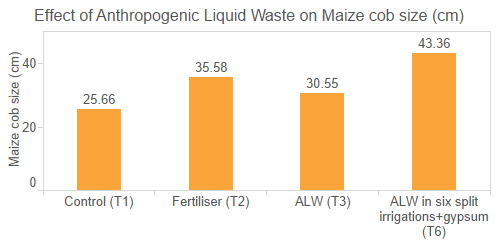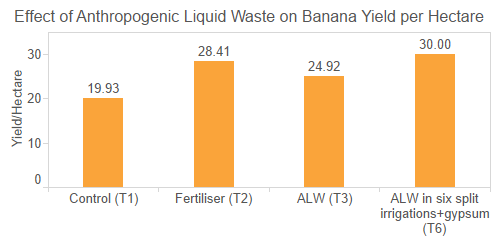Gadkari Is Right: Urine Good For Plants

Nitin Jairam Gadkari, Minister of Road Transport, Highways and Shipping at the World Economic Forum-India Economic Summit 2014 in New Delhi
A scientific study confirms Union Minister Nitin Gadkari’s claims: Urine is a natural fertiliser and nutrient source. Used in combination with gypsum, human urine leads to healthier, larger and more nutritious foodgrain and fruit and at a marginally cheaper cost than chemical fertilisers, according to a 2008 study done by Bangalore’s University of Agricultural Sciences (UAS) and supported by Arghyam, a non-profit that addresses water and sanitation issues. “It is important that people accept the benefits of human urines in agricultural productivity and overcome reservations on coming in direct contact with urine,” said C.A. Srinivasamurthy, a UAS professor who guided the study. The research entered its next phase in 2009, with human urine being evaluated on, among others, tomato, ladyfinger, brinjal, ragi, cowpea, marigold, beans, ashgourd and pumpkin. This time, cow urine was also used, but human urine had “higher nutrient value” and led to higher yields, said Srinivasmurthy. Gadkari, who said he stored his urine in a 50-litre bottle and used it on house plants, was widely mocked on twitter with the hashtag #Gadkarileaks.PM says pee in toilets. #Gadkari says pee in the garden. The nation wants to know where to pee. #GadkariLeaks
— Pawan Khera (@Pawankhera) May 5, 2015
 When used as sole fertiliser, urine did not perform better than chemical fertiliser, but it did better than plants without any fertiliser. Used with gypsum, in specific dilutions delivered through drip irrigation, urine outperforms every other option. These findings were the result of a doctoral thesis by G. Sridevi of the department of soil science and agriculture chemistry, guided by UAS professor Srinivasamurthy, on the reuse of human urine in agriculture. “Human urine can be used as a wholesome liquid fertiliser,” said Srinivasmurthy. “It can save a minimum of Rs 2000 to Rs 3,000 per acre of land depending on the crop species.” Human urine has been successfully used as fertiliser in other countries, including China, Japan and Nepal, the presentation said. In India, it has been used on potatoes and chillies in Manipur. Urine generates nitrogen, phosphorous and potassium—together called NPK—important components of agricultural fertiliser. The UAS experiments were conducted in the laboratory and the field, comparing untreated crops with crops treated with various dilutions of urine and chemically fertilized crops. In the following film, Sreedevi explains her research:
When used as sole fertiliser, urine did not perform better than chemical fertiliser, but it did better than plants without any fertiliser. Used with gypsum, in specific dilutions delivered through drip irrigation, urine outperforms every other option. These findings were the result of a doctoral thesis by G. Sridevi of the department of soil science and agriculture chemistry, guided by UAS professor Srinivasamurthy, on the reuse of human urine in agriculture. “Human urine can be used as a wholesome liquid fertiliser,” said Srinivasmurthy. “It can save a minimum of Rs 2000 to Rs 3,000 per acre of land depending on the crop species.” Human urine has been successfully used as fertiliser in other countries, including China, Japan and Nepal, the presentation said. In India, it has been used on potatoes and chillies in Manipur. Urine generates nitrogen, phosphorous and potassium—together called NPK—important components of agricultural fertiliser. The UAS experiments were conducted in the laboratory and the field, comparing untreated crops with crops treated with various dilutions of urine and chemically fertilized crops. In the following film, Sreedevi explains her research: Advertisement
Next Story


